********** FOOD **********
return to top
Joe Trivelli’s recipes for gnocchi with asparagus, sorrel soup, hake and radishes, and baked apricots
Sun, 05 May 2024 09:30:06 GMT
Vivid colours and powerful fresh flavours to welcome the brighter days of early May
Sorrel, asparagus, radishes: at last, some strong colours and flavours. After I’ve doused asparagus spears with melted butter at least once I’m up for something new, so we’ve been eating British asparagus with lemon-spiked gnocchi. The mellow of the cream and soft white fish underwrites the pepper of the seared radish in a quick and sustaining supper. Sorrel adds its vivid splash of green to a fresh and bolstering spring soup. This is food for the brighter days of May.
Continue reading...The traditional British weekend lunch is being revamped with more exotic ingredients by chefs with worldwide influences
The ingredients of a traditional Sunday roast are often passionately debated: does a yorkshire pudding belong if the meat is not beef? Is cauliflower cheese an acceptable side?
Now a growing number of pubs and restaurants are adding even more unusual contenders into the mix, adapting the beloved meal with global additions.
Continue reading...There’s a great restaurant and bar scene in this surf mecca, plus birdlife and snorkelling on peaceful islands a short ride away
It was the small and enigmatic Berlengas archipelago that drew us to Peniche harbour. Peniche, 60 miles north of Lisbon, is famous for its surfing beaches, but the islands off its coast often get overlooked. Every morning a couple of hardy passenger boats bounce over eight miles of waves from the peninsula of Peniche to Berlenga Grande. We took our seats on deck between sacks of onions and oranges and, flecked with sea-spray and followed by flocks of screaming gulls, we watched green hills emerge from blue waves ahead. At the port, the goods are unloaded with gulls wheeling and cawing overhead.
Seabirds nest everywhere: in the island’s grass, its sea caves and its hidden coves. Keeping out of nesting areas, we followed a footpath to a pair of sandy beaches. The sea is warmer here than at the more open mainland stretches and, at Praia da Berlenga, it is as still and clear as sea-green stained glass and offers fantastic diving.
Continue reading...With a famed pie maker on board, the new ‘British brasserie’ in Paris ought to be glorious. Instead, it’s a huge disappointment
Public House, 21 rue Daunou, 75002 Paris, France (+33 1 77 37 87 93; publichouseparis.fr). Starters €8.50-€19.50; mains €19.50-€36.50; desserts €9-€15; wines from €28
It was a simple plan: hop on the Eurostar to Paris and go for dinner at Public House, a new and audacious restaurant in the 9th arrondissement by pie king Calum Franklin, formerly of the Holborn Dining Room. Its mission: to bring scotch eggs, sausage rolls and the best, most golden, flaky pastry creations to the French. I could then write a sweet observational piece about the bourgeoisie of the Louboutin-shod opera district swooning over steak and ale pies, and adjusting both their corsets and their gastronomic perspective. Behold, the gravy-slicked anglais showing us how to eat. “Donney-moi une autre pie” etc. Because if anybody could do it, if anybody could finally make the French understand the quality and depth of modern British restaurant food, it had to be Franklin. He’s a gifted chef. He’s a lovely man. He literally wrote the book on pies. Go Calum, go.
Continue reading...After this week’s terrible results for his party, the only honourable thing to do is let voters decide his fate
Rishi Sunak’s government began last week by triumphantly announcing that a man whose asylum claim had been rejected had volunteered to take up to £3,000 cash in exchange for agreeing to take a commercial flight to Rwanda – plus the provision of housing, food and healthcare there for five years at a cost of £150,000 to the taxpayer. Sunak bookended it with some of the worst-ever English local election results for the Conservatives, and the shock loss of the West Midlands mayoralty to the Labour party.
A direct line can be traced from this preposterous claim of success to electoral disaster. During 14 years in government, the Conservatives have eroded the welfare safety net, sabotaged the quality of public services through underfunding and neglect, and imposed a huge economic hit in the form of a hard Brexit. Child poverty has gone up, the NHS is blighted by record waiting lists and understaffing and social care services for the vulnerable have been adversely affected.
Continue reading...Firms said food and plant checks and Latin names causing costly delays with lorries waiting hours in first week of post-EU regime
Of all the effects of Brexit, probably the least anticipated was that flower exporters and customs officials would have to learn Latin.
But that is one of the problems that confronted British businesses in the first week after the government introduced physical checks on some food and plants from the EU.
Continue reading...Staff offer support to protesters as locals donate food, drink, bedding and books
The collection of 12 tents pitched in a soggy garden at the heart of Bristol university’s campus is on a much smaller scale than the Palestine solidarity encampments sweeping the US. But the outrage at what this new generation of student activists regard as the complicity of education institutions in Israel’s assault on Gaza is just as raw.
“It makes me feel sick to my stomach,” said Olivia [not her real name], a second-year student at the university, outside the camp on Friday. “I feel deeply disgusted and ashamed. This protest is absolutely the least I can do for someone studying at a university that is so complicit.” Like many of the students involved in the protest, she doesn’t want to share her name. “There could be academic repercussions [for students taking part]: anything from being banned from university buildings to suspensions and expulsions,” she said. “This has happened in the UK, but not at this university so far.”
Continue reading...Palestinian restauranteur speaks from Bethlehem, where food stalls are sparse as farmlands are under attack
Fadi Kattan looked forlornly at the stalls inside the Bethlehem vegetable market bearing small quantities of oranges, watermelons and cauliflowers. “This stall should be heaped with products, he said. “And over there should be piles of aubergines and courgettes.”
The watermelons from Jenin looked too small for the season, while he wasn’t sure where the boxes of oranges were from. They would normally be from Gaza. At Um Nabil’s stall in the West Bank market where Kattan is a regular customer, she told him she could no longer afford to bring in the best small local cucumbers or piles of green cherries from her village of Artas.
Continue reading...Sofie Hagen loves sex – so why has it been 3,089 days since she’s had any? (1m27s); A flat white can now set you back up to £5.19 – but should we swallow it? (25m13s); and psychotherapist and Observer columnist Philippa Perry addresses a reader’s personal problem (43m51s).
Continue reading...The population of El Fasher, which includes thousands of displaced people, is in ‘dire need of food, medicine and water’
Water, food and fuel supplies for people in the largest city in the Darfur region of Sudan are being choked off as fighting intensifies, according to reports.
El Fasher has been encircled by the Rapid Support Forces (RSF) paramilitary group over recent weeks, besieging the population as well as the Sudanese Armed Forces (SAF) and allied militias.
Continue reading...When police attacked student protesters, a lone trash can was the only damaged property I saw around City College of New York.
The post I’ve Covered Violent Crackdowns on Protests for 15 Years. This Police Overreaction Was Unhinged. appeared first on The Intercept.
A weekly email from Yotam Ottolenghi, Meera Sodha, Felicity Cloake and Rachel Roddy, featuring the latest recipes and seasonal eating ideas
Each week we’ll send you an exclusive newsletter from our star food writers. We’ll also send you the latest recipes from Yotam Ottolenghi, Nigel Slater, Meera Sodha and all our star cooks, stand-out food features and seasonal eating inspiration, plus restaurant reviews from Grace Dent and Jay Rayner.
Sign up below to start receiving the best of our culinary journalism in one mouth-watering weekly email.
Continue reading...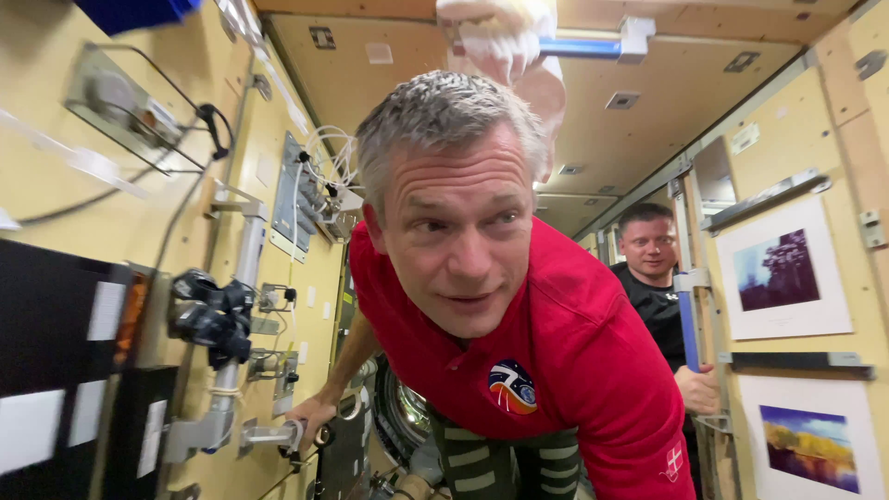 Video:
00:07:30
Video:
00:07:30
On the last day of his Huginn mission, ESA astronaut Andreas Mogensen takes us on a tour of the place he called home for 6 months: the International Space Station. From the beautiful views of Cupola to the kitchen in Node 1 filled with food and friends and all the way to the science of Columbus, the Space Station is the work and living place for astronauts as they help push science forward.
Style, with substance: what’s really trending this week, a roundup of the best fashion journalism and your wardrobe dilemmas solved, direct to your inbox every Thursday
Style, with substance: what’s really trending this week, a roundup of the best fashion journalism and your wardrobe dilemmas solved, delivered straight to your inbox every Thursday
Explore all our newsletters: whether you love film, football, fashion or food, we’ve got something for you
Continue reading... |
Imagine a world in which you can do transactions and many other things without having to give your personal information. A world in which you don’t need to rely on banks or governments anymore. Sounds amazing, right? That’s exactly what blockchain technology allows us to do.
It’s like your computer’s hard drive. blockchain is a technology that lets you store data in digital blocks, which are connected together like links in a chain.
Blockchain technology was originally invented in 1991 by two mathematicians, Stuart Haber and W. Scot Stornetta. They first proposed the system to ensure that timestamps could not be tampered with.
A few years later, in 1998, software developer Nick Szabo proposed using a similar kind of technology to secure a digital payments system he called “Bit Gold.” However, this innovation was not adopted until Satoshi Nakamoto claimed to have invented the first Blockchain and Bitcoin.
A blockchain is a distributed database shared between the nodes of a computer network. It saves information in digital format. Many people first heard of blockchain technology when they started to look up information about bitcoin.
Blockchain is used in cryptocurrency systems to ensure secure, decentralized records of transactions.
Blockchain allowed people to guarantee the fidelity and security of a record of data without the need for a third party to ensure accuracy.
To understand how a blockchain works, Consider these basic steps:
Let’s get to know more about the blockchain.
Blockchain records digital information and distributes it across the network without changing it. The information is distributed among many users and stored in an immutable, permanent ledger that can't be changed or destroyed. That's why blockchain is also called "Distributed Ledger Technology" or DLT.
Here’s how it works:
And that’s the beauty of it! The process may seem complicated, but it’s done in minutes with modern technology. And because technology is advancing rapidly, I expect things to move even more quickly than ever.
Even though blockchain is integral to cryptocurrency, it has other applications. For example, blockchain can be used for storing reliable data about transactions. Many people confuse blockchain with cryptocurrencies like bitcoin and ethereum.
Blockchain already being adopted by some big-name companies, such as Walmart, AIG, Siemens, Pfizer, and Unilever. For example, IBM's Food Trust uses blockchain to track food's journey before reaching its final destination.
Although some of you may consider this practice excessive, food suppliers and manufacturers adhere to the policy of tracing their products because bacteria such as E. coli and Salmonella have been found in packaged foods. In addition, there have been isolated cases where dangerous allergens such as peanuts have accidentally been introduced into certain products.
Tracing and identifying the sources of an outbreak is a challenging task that can take months or years. Thanks to the Blockchain, however, companies now know exactly where their food has been—so they can trace its location and prevent future outbreaks.
Blockchain technology allows systems to react much faster in the event of a hazard. It also has many other uses in the modern world.
Blockchain technology is safe, even if it’s public. People can access the technology using an internet connection.
Have you ever been in a situation where you had all your data stored at one place and that one secure place got compromised? Wouldn't it be great if there was a way to prevent your data from leaking out even when the security of your storage systems is compromised?
Blockchain technology provides a way of avoiding this situation by using multiple computers at different locations to store information about transactions. If one computer experiences problems with a transaction, it will not affect the other nodes.
Instead, other nodes will use the correct information to cross-reference your incorrect node. This is called “Decentralization,” meaning all the information is stored in multiple places.
Blockchain guarantees your data's authenticity—not just its accuracy, but also its irreversibility. It can also be used to store data that are difficult to register, like legal contracts, state identifications, or a company's product inventory.
Blockchain has many advantages and disadvantages.
I’ll answer the most frequently asked questions about blockchain in this section.
Blockchain is not a cryptocurrency but a technology that makes cryptocurrencies possible. It's a digital ledger that records every transaction seamlessly.
Yes, blockchain can be theoretically hacked, but it is a complicated task to be achieved. A network of users constantly reviews it, which makes hacking the blockchain difficult.
Coinbase Global is currently the biggest blockchain company in the world. The company runs a commendable infrastructure, services, and technology for the digital currency economy.
Blockchain is a decentralized technology. It’s a chain of distributed ledgers connected with nodes. Each node can be any electronic device. Thus, one owns blockhain.
Bitcoin is a cryptocurrency, which is powered by Blockchain technology while Blockchain is a distributed ledger of cryptocurrency
Generally a database is a collection of data which can be stored and organized using a database management system. The people who have access to the database can view or edit the information stored there. The client-server network architecture is used to implement databases. whereas a blockchain is a growing list of records, called blocks, stored in a distributed system. Each block contains a cryptographic hash of the previous block, timestamp and transaction information. Modification of data is not allowed due to the design of the blockchain. The technology allows decentralized control and eliminates risks of data modification by other parties.
Blockchain has a wide spectrum of applications and, over the next 5-10 years, we will likely see it being integrated into all sorts of industries. From finance to healthcare, blockchain could revolutionize the way we store and share data. Although there is some hesitation to adopt blockchain systems right now, that won't be the case in 2022-2023 (and even less so in 2026). Once people become more comfortable with the technology and understand how it can work for them, owners, CEOs and entrepreneurs alike will be quick to leverage blockchain technology for their own gain. Hope you like this article if you have any question let me know in the comments section
FOLLOW US ON TWITTER
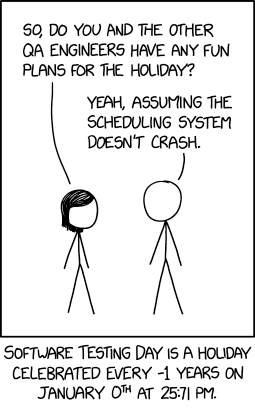
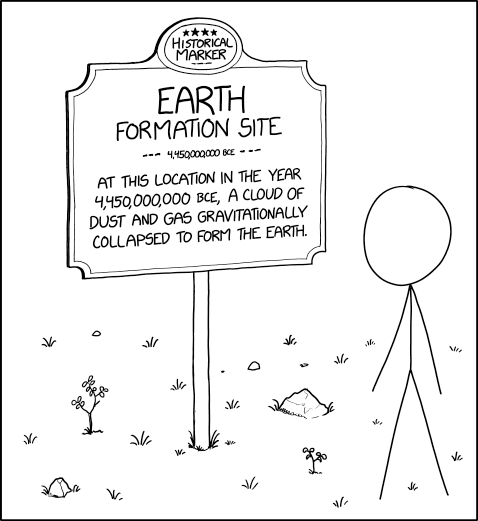
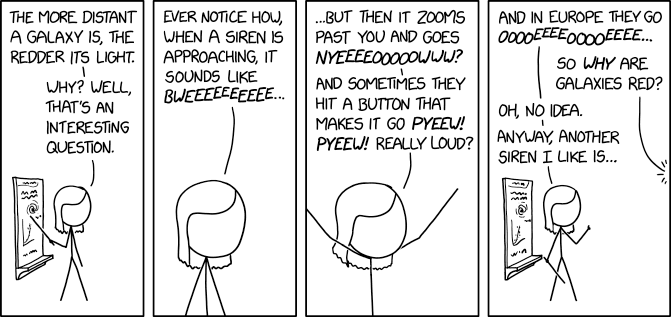
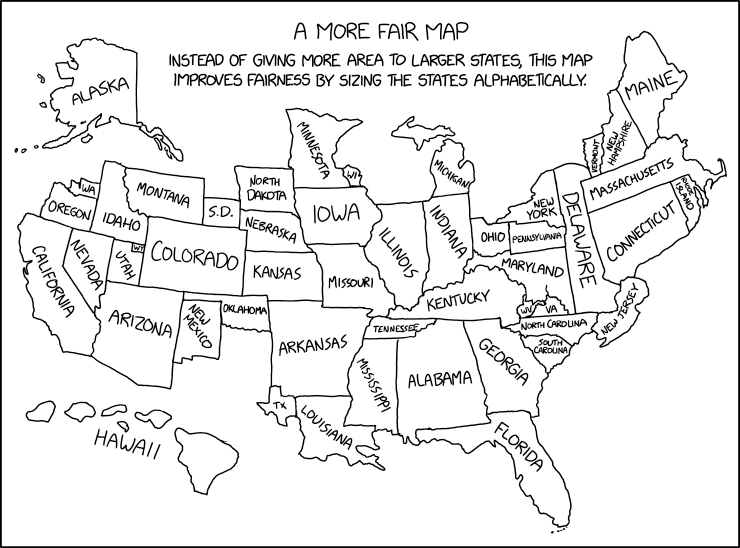
Much art, from Bob Dylan to Robert Frank, derives its greatness from its flaws. But sporting perfection is a whole different ball game
I’m not one to boast but on a recent Sunday morning I achieved perfection. To be precise – and there is no perfection without precision – I was half of something perfectly achieved. On the second version of the song Love Sick – which only saw the light of day last year as part of the continuing series of official Bootleg releases – Bob Dylan says he’s “struggling, striving / For perfection”. Proof of the struggle and strife is the way that this declaration was absent from the first take and deleted from the subsequent version selected for the album Time Out of Mind (1997). Despite what he claims, Dylan is not – and never has been – interested in perfection. He’s always been plunging on to the next line, the next verse, the next song. Yes, he looks forward, in another song, to the day when he’ll paint his masterpiece but on several occasions potential masterpieces were abandoned – She’s Your Lover Now, I’m Not There – because other imperfect masterpieces were soon jostling for attention.
Dylan has written more great songs than anyone in history but a condition of that greatness is that he was not hung up on perfecting any of them. Every version of every Dylan song could be improved. For each enhancement made to a song’s lyrics there’s a corresponding loss. He throws in wonderful lines, chucks out great lines and leaves terrible ones intact. His constant tampering with the lyrics is evidence not of perfectionism but of a restless hunger that is in some ways its opposite. In this respect he’s similar to the photographer Robert Frank, who said that a book of photographs by Hermann Eidenbenz (in whose studio he worked) “put me off perfection for life”.
Continue reading...Emerging from Covid’s shadow, the city is resonating with glamour, politics and power – and the traffic jams are building up too
Call it a return to IRL (In Real Life). New Yorkers are experiencing a bracing resumption of the physical experience of living in the city, four years after the onset of the pandemic upended routines, pushed people online and left much of the population, as in so many places, wondering if normality would ever return.
Uptown, police have broken up student protests on the Columbia and City University campuses condemning Israel’s attack on Gaza. Downtown, a furious Donald Trump is commandeering attention from the courthouse on the edge of Chinatown, snarling up traffic as his motorcade travels to and fro. President Biden’s fundraising trips to the city to fund his re-election are having a similar effect.
Continue reading...From a hideaway with star-gazing spectacular enough to keep you off your phone to a ‘burnout’ retreat and a reimagined coastguard lookout
Bordering the Consall Nature Park, a nature reserve featuring 740 acres of woodland, heath and moor, is The Tawny, a “deconstructed hotel”. This means that instead of a single house with rooms there are a collection of boathouses, huts and treehouses scattered around the woodlands and lakes. At the top of the hill is a modern glass building, the Plumicorn restaurant, and a heated outdoor pool looking out over the gardens. Stargazing sessions and night-time meditation are on offer, while spa treatments can be booked in the thatched cottage onsite.
Huts from £240 B&B; thetawny.co.uk
Berkshire Hathaway’s billionaire CEO, 93, steels shareholders for new era at the annual meeting known as ‘Woodstock for Capitalists’
As dawn broke on Saturday, thousands had gathered outside Omaha’s CHI Health Center Arena. Some arrived before 3.30am, standing for hours in the drizzle.
This is a “once-in-a-lifetime opportunity”, said Larry Blivas, 70, near the front of the line. The realtor traveled from Los Angeles to see “an icon”, he explained.
Continue reading...I travelled the UK interviewing teenage boys. I found openness, thoughtfulness, honesty and vulnerability on topics from sex to pornography, feelings and isolation
It was two separate conversations that made me think properly about what life might be like as a boy these days. The first was about a 13-year-old, the son of a friend, who said he had been rounded on for making a small (and, he thought, complimentary) comment about a girl’s haircut.
He told his mother that the girl’s friends were outraged: “Oh my God, you can’t say that about someone’s appearance. That’s so bad. You can’t talk about a girl like that!”
Continue reading...There’s a great restaurant and bar scene in this surf mecca, plus birdlife and snorkelling on peaceful islands a short ride away
It was the small and enigmatic Berlengas archipelago that drew us to Peniche harbour. Peniche, 60 miles north of Lisbon, is famous for its surfing beaches, but the islands off its coast often get overlooked. Every morning a couple of hardy passenger boats bounce over eight miles of waves from the peninsula of Peniche to Berlenga Grande. We took our seats on deck between sacks of onions and oranges and, flecked with sea-spray and followed by flocks of screaming gulls, we watched green hills emerge from blue waves ahead. At the port, the goods are unloaded with gulls wheeling and cawing overhead.
Seabirds nest everywhere: in the island’s grass, its sea caves and its hidden coves. Keeping out of nesting areas, we followed a footpath to a pair of sandy beaches. The sea is warmer here than at the more open mainland stretches and, at Praia da Berlenga, it is as still and clear as sea-green stained glass and offers fantastic diving.
Continue reading...With a famed pie maker on board, the new ‘British brasserie’ in Paris ought to be glorious. Instead, it’s a huge disappointment
Public House, 21 rue Daunou, 75002 Paris, France (+33 1 77 37 87 93; publichouseparis.fr). Starters €8.50-€19.50; mains €19.50-€36.50; desserts €9-€15; wines from €28
It was a simple plan: hop on the Eurostar to Paris and go for dinner at Public House, a new and audacious restaurant in the 9th arrondissement by pie king Calum Franklin, formerly of the Holborn Dining Room. Its mission: to bring scotch eggs, sausage rolls and the best, most golden, flaky pastry creations to the French. I could then write a sweet observational piece about the bourgeoisie of the Louboutin-shod opera district swooning over steak and ale pies, and adjusting both their corsets and their gastronomic perspective. Behold, the gravy-slicked anglais showing us how to eat. “Donney-moi une autre pie” etc. Because if anybody could do it, if anybody could finally make the French understand the quality and depth of modern British restaurant food, it had to be Franklin. He’s a gifted chef. He’s a lovely man. He literally wrote the book on pies. Go Calum, go.
Continue reading...Siblings Callum and Jake Robinson and US citizen Jack Carter Rhoad were travelling on a surfing holiday when they were reported missing
Three people have been arrested on charges of kidnapping after three bodies were found in an area of northern Mexico where two Australian brothers and an American friend went missing.
Perth siblings Callum and Jake Robinson, both in their 30s, were travelling in the region on a surfing holiday, with their friend Jack Carter Rhoad, a US citizen. The trio was reported missing when they failed to check into pre-arranged accommodation near the city of Ensenada last weekend.
Continue reading...  | submitted by /u/Wagamaga [link] [comments] |
Palestinian restauranteur speaks from Bethlehem, where food stalls are sparse as farmlands are under attack
Fadi Kattan looked forlornly at the stalls inside the Bethlehem vegetable market bearing small quantities of oranges, watermelons and cauliflowers. “This stall should be heaped with products, he said. “And over there should be piles of aubergines and courgettes.”
The watermelons from Jenin looked too small for the season, while he wasn’t sure where the boxes of oranges were from. They would normally be from Gaza. At Um Nabil’s stall in the West Bank market where Kattan is a regular customer, she told him she could no longer afford to bring in the best small local cucumbers or piles of green cherries from her village of Artas.
Continue reading...Nahla Al-Arian lost more than 200 relatives in Israel's attacks on Gaza. Then Eric Adams said she was the reason police raided Columbia.
The post NYC Mayor Smeared a Grandmother as an “Outside Agitator” to Justify NYPD Assault on Columbia appeared first on The Intercept.
We would like to hear from people who have been affected by postponements and cancellations at the Co-op Live arena
The Co-op Live arena has postponed or cancelled several of its music and comedy shows in recent weeks due to technical problems at the venue. Olivia Rodrigo, Peter Kay and A Boogie Wit Da Hoodie are among the performers whose gigs have been disrupted.
We would like to hear from people who have been affected by the disruptions at the Co-op Live arena. Had you planned to travel to see the show? Will you make it to a rescheduled show?
Continue reading...The far right are on the march in Germany and the anti-immigrant Alternative for Germany has become the most popular party in several states. Immigration and a sense of being economically left behind have been driving factors in the rise in popularity but the Green party and the federal government’s climate policies have also borne the brunt of public anger. The Guardian travelled to Görlitz, on the German border with Poland, to find out to what extent Germany’s green policies are fuelling the far right
• How climate policies are becoming focus for far-right attacks in Germany
Continue reading...For years, the political establishment opportunistically railed against sex trafficking. Then came Pizzagate.
The post QAnon Was Born Out of the Sex Ad Moral Panic That Took Down Backpage.com appeared first on The Intercept.
A measure passed by the House seeks to block Americans from traveling to Iran on U.S. passports.
The post House Responds to Israeli-Iranian Missile Exchange by Taking Rights Away From Americans appeared first on The Intercept.
The web has become so interwoven with everyday life that it is easy to forget what an extraordinary accomplishment and treasure it is. In just a few decades, much of human knowledge has been collectively written up and made available to anyone with an internet connection.
But all of this is coming to an end. The advent of AI threatens to destroy the complex online ecosystem that allows writers, artists, and other creators to reach human audiences.
To understand why, you must understand publishing. Its core task is to connect writers to an audience. Publishers work as gatekeepers, filtering candidates and then amplifying the chosen ones. Hoping to be selected, writers shape their work in various ways. This article might be written very differently in an academic publication, for example, and publishing it here entailed pitching an editor, revising multiple drafts for style and focus, and so on...
The White House brushes off accusations of hypocrisy, courting TikTok while seeking to ban it.
The post As Biden Cheers TikTok Ban, White House Embraces TikTok Influencers appeared first on The Intercept.
From biking adventures to city breaks, get inspiration for your next break – whether in the UK or further afield – with twice-weekly emails from the Guardian’s travel editors. You’ll also receive handpicked offers from Guardian Holidays.
From biking adventures to city breaks, get inspiration for your next break – whether in the UK or further afield – with twice-weekly emails from the Guardian’s travel editors.
You’ll also receive handpicked offers from Guardian Holidays.
Continue reading...RSS Rabbit links users to publicly available RSS entries.
Vet every link before clicking! The creators accept no responsibility for the contents of these entries.
Relevant
Fresh
Convenient
Agile
We're not prepared to take user feedback yet. Check back soon!